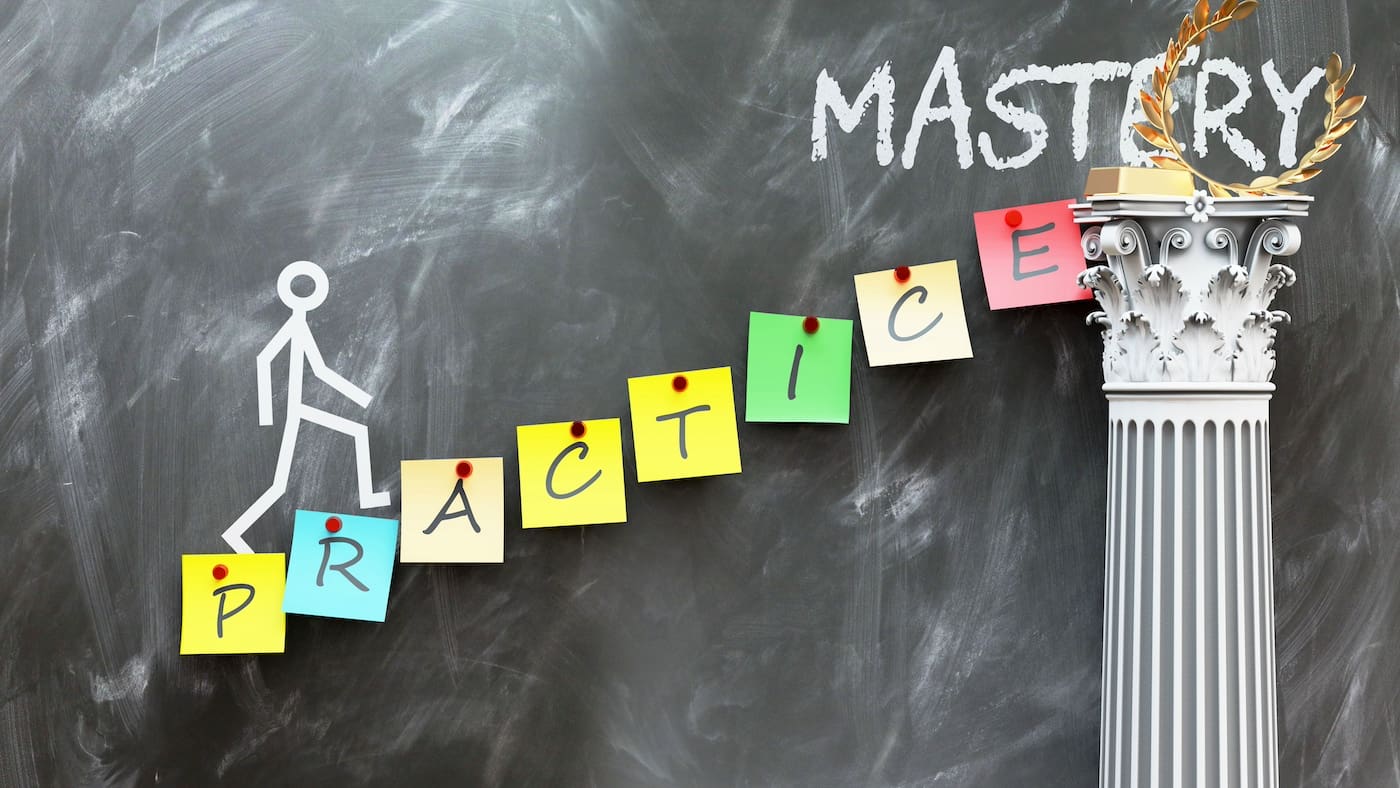One of the most valuable habits often left behind in the journey from childhood to adulthood is the art of practicing. As children and students, we perform practice tests, rehearsals, and drills to prepare for exams, sports events, and recitals. However, as we transition into our professional lives, the notion of practicing tends to fade away unless we are professional athletes or musicians. This shift can be detrimental to our growth and performance in the workplace. In this article, we will explore the importance of practicing in the business world and offer practical advice on incorporating this lost art into your daily routine to enhance your skills and propel your career forward.
The Importance of Practicing in the Professional World
Bridging the Gap Between Learning and Execution
Practicing serves as a bridge between theoretical knowledge and real-world execution. Practice tests help students gauge their understanding and prepare for actual school exams. Similarly, athletes train rigorously in sports to refine their skills and strategies for game day. This same principle applies to the business world. Regular practice allows professionals to refine their abilities, gain confidence, and perform best when it matters most.
Continuous Improvement and Adaptability
Continuous improvement and adaptability are crucial in today’s fast-paced and ever-evolving business environment. Practicing enables professionals to stay sharp, learn new skills, and adapt to changing circumstances. Whether improving your communication skills, mastering new software, or developing leadership qualities, consistent practice helps you stay ahead of the curve and remain competitive.
Building Confidence and Reducing Anxiety
One of the primary benefits of practicing is the boost in confidence it provides. You become more comfortable and proficient when you practice a skill repeatedly, reducing the anxiety associated with performing under pressure. This increased confidence can significantly impact your overall performance, whether you’re delivering a presentation, negotiating a deal, or managing a team.

Key Areas to Practice in the Business World
Listening
Effective listening is a fundamental skill that is often overlooked in the workplace. By practicing active listening, you can improve your ability to understand and respond to others, build stronger relationships, and make more informed decisions. To practice listening, try the following:
- Active Listening Exercises: Engage in conversations with the intent to listen rather than respond. Focus on the speaker’s words, tone, and body language. Practice summarizing what you’ve heard and ask clarifying questions to ensure understanding.
- Feedback Sessions: Seek feedback from colleagues on your listening skills. Act on their suggestions and continue to refine your approach.
Writing
Clear and effective writing is essential for communication in the business world. Whether it’s drafting emails, creating reports, or developing marketing content, practicing writing can enhance your ability to convey ideas clearly and persuasively. Here are some tips to improve your writing skills:
- Daily Writing Practice: Set aside time each day to write. This could be journaling, blogging, or writing professional documents. Focus on clarity, coherence, and conciseness.
- Peer Review: Share your writing with colleagues and ask for feedback. Constructive criticism can help you identify areas for improvement and develop a more polished writing style.
Leadership
Being a good manager or owner requires continuous development and practice. Leadership involves various skills, including decision-making, conflict resolution, and motivating others. To practice leadership, consider the following:
- Role-Playing Scenarios: Engage in role-playing exercises with colleagues or mentors to practice handling various leadership challenges. This can help you develop your problem-solving abilities and confidence in real-life situations.
- Leadership Training Programs: Participate in workshops, seminars, and training programs on leadership development. These programs often provide practical exercises and feedback to help you refine your skills.
Intentional Conversations
Intentional conversations are purposeful and meaningful interactions that can drive positive outcomes in the workplace. Practicing intentional conversations can improve your ability to connect with others, build trust, and foster collaboration. Here are some ways to practice:
- Set Conversation Goals: Set clear goals and objectives before engaging in a conversation. Consider what you want to achieve and how to guide the conversation towards that outcome.
- Mindfulness Techniques: Practice mindfulness to stay present and focused during conversations. This can help you listen more effectively and respond thoughtfully.

How to Incorporate Practice into Your Daily Routine
Create a Practice Schedule
Just as athletes have training schedules, professionals should create practice schedules to develop their skills consistently. Dedicate specific times each day or week to practicing different areas. For example, allocate time for writing exercises, listening practice, and leadership development.
Set Clear Goals and Track Progress
Establish clear, measurable goals for your practice sessions. For instance, aim to improve your listening skills by actively engaging in three monthly feedback sessions. Track your progress and celebrate your achievements to stay motivated.
Seek Feedback and Act on It
Feedback is essential for improvement. Regularly seek feedback on your performance from colleagues, mentors, and supervisors. Use their insights to identify areas for improvement and adjust your practice strategies accordingly.
Embrace a Growth Mindset
Adopting a growth mindset is crucial for effective practice. Embrace challenges, learn from failures, and view practice as an opportunity for growth rather than a chore. This mindset will help you stay motivated and committed to continuous improvement.
Practical Exercises to Enhance Your Skills
Listening Exercise: The Mirror Technique
The mirror technique involves repeating what the speaker has said to ensure understanding and show that you are actively listening. Practice this technique in meetings and conversations to enhance your listening skills. For example, if a colleague explains a project plan, respond with, “So, you’re saying that we need to complete the first phase by next Friday and then move on to the second phase?”
Writing Exercise: The Elevator Pitch
An elevator pitch is a brief, persuasive speech that can spark interest in your or your organization’s work. Practice writing and delivering your elevator pitch to improve your writing and communication skills. Focus on clarity, brevity, and impact.
Leadership Exercise: The Decision-Making Matrix
Create a decision-making matrix to practice making informed and effective decisions. List potential options, weigh the pros and cons, and consider the potential impact of each choice. This exercise can help you develop your critical thinking and decision-making skills.
Intentional Conversation Exercise: The Socratic Method
The Socratic method involves asking open-ended questions to stimulate critical thinking and dialogue. Practice using this method in your conversations to foster deeper understanding and collaboration. For example, instead of asking, “Did you complete the task?” ask, “What challenges did you encounter while completing the task, and how did you overcome them?”
Reviving the Art of Practicing for Professional Success
The art of practicing is not just for athletes and musicians; it is a powerful tool for professionals seeking to excel in their careers. By incorporating regular practice into your daily routine, you can bridge the gap between learning and execution, continuously improve your skills, and build confidence in your abilities. Whether it’s listening, writing, leadership, or intentional conversations, practicing these key areas can unlock high performance and propel you toward success. As a customer experience and change management operational success consultant, I encourage you to embrace the lost art of practicing. Set clear goals, create a practice schedule, seek feedback, and maintain a growth mindset. By doing so, you will not only enhance your skills but also inspire those around you to strive for continuous improvement and excellence. Remember, practice is not just preparation for success but the path to achieving it.





